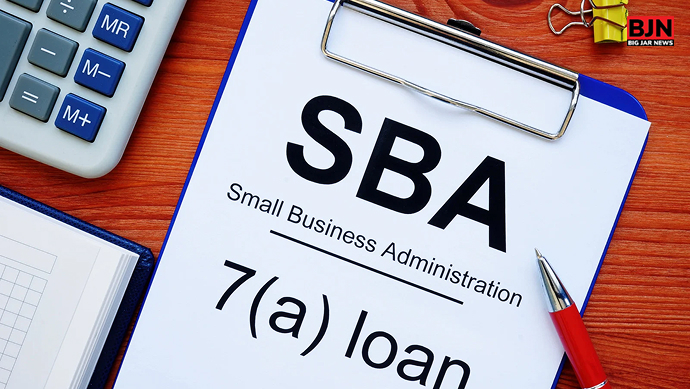The Role of the Small Business Administration (SBA) in the Support of Entrepreneurs

Table Of Contents
When you are starting your own small business and operating it, the entire idea of it can be thrilling. But we cannot ignore all the challenges, right?
You have to focus on raising funds and navigating the legal landscape. How can you manage everything on your own? This is where the Small Business Administration (SBA) comes in.
The SBA is a public agency that assists small companies in growing and prospering. Its mission in general is to provide
- Resources,
- Guidance, and
- Support
This way, the entrepreneurs can make their ideas successful businesses. The SBA can be a reliable ally whether you’re starting a new business or operating an existing one.
In this blog, we will discuss what the SBA does, the advantages it offers, and how it assists business owners.
We will also discuss how you can utilize SBA programs and benefit from the resources that are available to you.
What is the Small Business Administration?
The Small Business Administration began in 1953 with a single purpose — to assist America’s small businesses.
Since that time, it has evolved into a wealth of information for millions of entrepreneurs. This is what the SBA considers:
- First of all, it provides access to capital, enabling firms to borrow.
- It provides training and counseling that can be useful in helping entrepreneurs with their plans, management, and growth.
- Assisting with government contracts helps small businesses compete for federal contracts.
- Protecting small businesses and advocating for their interest in government policies.
What makes the SBA unique? Well, it provides you with funding. Moreover, it educates and counsels entrepreneurs on how to create successful and sustainable businesses.
This way, you don’t have to figure things out on your own! The SBA can assist you step by step!
SBA Loan Programs

One of the SBA’s most popular products is its loan program. The SBA does not lend, but it assists banks and lenders in making it easier for small business owners to borrow.
Types of SBA loans are:
- 7(a) Loan Program – the most prevalent, to be used for working capital, equipment, or real estate.
- The 504 Loan Program – This mainly assists companies in buying fixed property, such as machinery or buildings.
- Microloans – These are like small loans for small businesses and start-ups. You are eligible to take a loan of upto $25,000 for your business or startup.
- Disaster Loans – These loans are financial assistance for companies hit by natural disasters.
- SBA loans – These loans have the benefit of lower interest rates, longer payment terms, and more lenient requirements compared to regular bank loans.
For most entrepreneurs, raising money is the most challenging aspect of starting a business.
The SBA loan guarantee program reduces the lenders’ risk, and consequently, more companies become qualified for financing.
Training, Mentorship, and Education
Money is valuable, but knowledge can be more valuable. The SBA offers different training and mentorship programs to enhance the skills of business owners.
Some key resources are:
- SCORE is an association of volunteer mentors providing free counsel to business owners.
- Small Business Development Centers (SBDCs) provide workshops, one-on-one advising, and market research assistance.
- Women’s Business Centers (WBCs) are dedicated to helping women entrepreneurs.
- Online Learning Center – free courses in areas like marketing, business planning, and finance.
These resources are perfect for novice and seasoned business owners alike. If you are mandated to learn how to develop a business plan or a marketing plan, the SBA has professionals who will guide you through the entire process.
Mentorship is highly essential. Learning from someone who has started a business will save you time, money, and stress.
SBA Assistance for Government Contracts

Do you know that the United States government buys more goods and services than anyone else in the world?
The SBA helps small businesses take advantage of this massive opportunity by learning how to bid on government contracts. These SBA contracting programs are:
| 8(a) Business Development Program | These are specifically designed for entrepreneurs who face social and economic challenges. |
| HUBZone Program | This Program assists businesses in historically underutilized areas. |
| Women-Owned Small Business (WOSB) Program | This offers opportunities to women-owned businesses. |
| Service-Disabled Veteran-Owned Small Business Program | This specific helps veteran business owners. |
Now, winning a government contract can be a secure source of income for a small business. The SBA provides training, certification, and networking opportunities to enable companies to compete in this marketplace successfully.
For most entrepreneurs, it can lead to long-term growth and success.
How SBA Can Help In Crisis Support And Disaster Assistance?

Natural disasters, economic issues, and unexpected emergencies act as a catalyst that can strongly damage small businesses.
What is the solution to this? Well, this is exactly where the SBA comes into play. It can provide all the quick assistance through which businesses can easily recover.
The types of SBA disaster relief are:
- First comes the Physical Damage Loans. These are there to replace or repair damaged property.
- Second, we have Economic Injury Disaster Loans (EIDLs). These specific loans can help businesses that are experiencing a decline in revenue because of a disaster.
- Lastly, the Military Reservist Economic Injury Disaster Loans assist businesses that are impacted when an owner or key employee is called up.
The SBA was also crucial during the COVID-19 pandemic. Initiatives such as the Paycheck Protection Program (PPP) and EIDL kept millions of businesses running during lockdowns.
Disaster relief assists small businesses in recovering and continues to offer services to their communities even after they have experienced difficult times.
Use of SBA Services
It is easier to begin with the SBA than one might think. Most of the resources are free, and they can be found online or in local offices.
Here’s how to reach the SBA
- Visit the SBA website – look at tools, guides, and online training.
- Find your area SBA office – receive assistance in person and attend workshops.
- Call SCORE or SBDCs – speak with business advisors and mentors.
- Apply for SBA loan programs through SBA-approved lenders.
- Get a government contracting program certification if you meet the qualifications.
The SBA is available everywhere throughout the country, which means wherever you are, there is an SBA resource local to you. Using these programs can make a real difference for your business venture.
Why the SBA Is Important to Entrepreneurs
The Small Business Administration is not merely a governmental agency — it is a network of assistance for small business entrepreneurs.
It provides financial assistance, training, and counseling to enable small businesses to compete against major businesses.
Here’s why it matters:
- Access to capital overcomes financial obstacles.
- Expert advice – from seasoned mentors and industry experts.
- Networking opportunities – bring together business owners, possible partners, and customers.
- Protection in times of crisis – offers assistance when things are tough.
So, yes! SBA can assist you in making a big difference, whether you are a small business owner or a new business owner. You can count it as a tool that provides entrepreneurs with just what they need to survive.
Final Thoughts
Entrepreneurship is thrilling! There is no doubt in that! However, nobody can deny the fact that comes with numerous challenges.
But, thanks to the Small Business Administration! Now it can help you to make the process easier by providing money alternatives, education, and access to opportunities such as government contracts.
If you are interested in starting a business or growing an existing one, consider what the SBA can do for you.
They offer free counseling and disaster loans, proving that they are well worth the effort in helping small businesses succeed. See the SBA not only as an asset, but as an ally on your path to business.
With its programs, you’re not just building a business; you’re establishing a more solid foundation upon which to build your future success.
Read More:

























